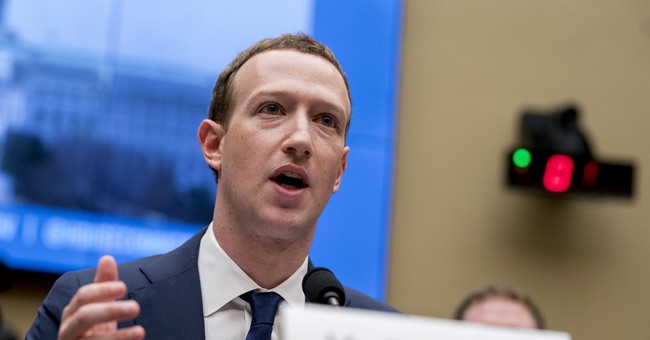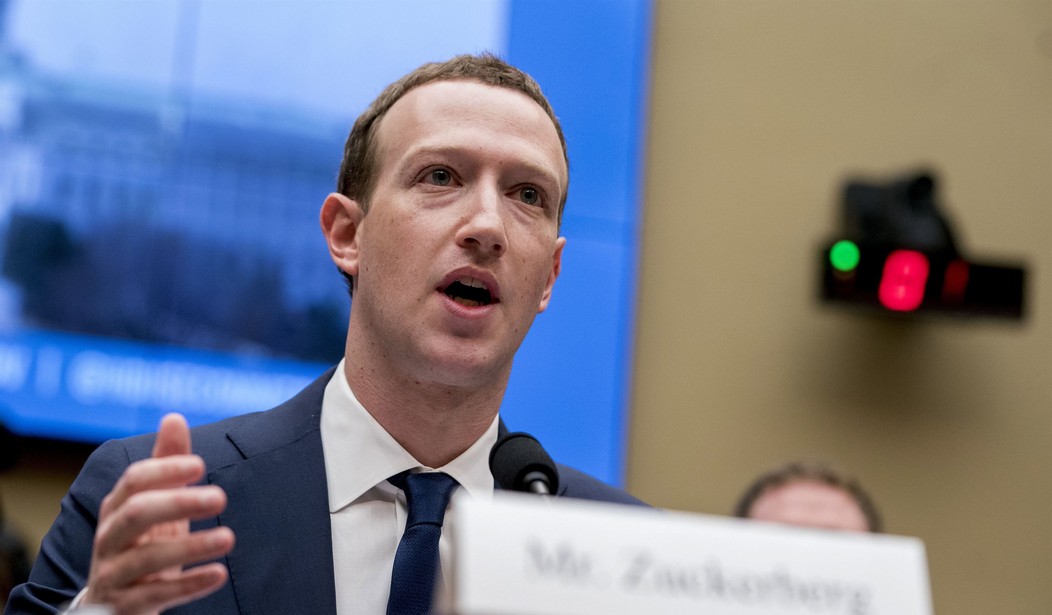
I want to like Facebook creator and CEO, Mark Zuckerberg. He continuously expresses wisdom when it comes to the way social media tech giants should approach the publisher vs. platform question.
To be clear, social media outlets are considered “platforms,” making their content all user-generated. This ultimately takes the liability off of a platform for whatever is posted on it. So, if anyone posts copyrighted material or publishes something completely false, the platform itself cannot be considered at fault. Publishers, however, have control over what is and isn’t allowed on their site and, as such, can be held liable for anything said or done on their platform.
Zuckerberg has expressed that, when it comes to social media platforms like his, it’s not his business to decide what is and isn’t truthful. According to Fox News, he reiterated this during an interview set to air Thursday:
“We have a different policy than, I think, Twitter on this,” Zuckerberg told “The Daily Briefing” in an interview scheduled to air in full on Thursday.
“I just believe strongly that Facebook shouldn’t be the arbiter of truth of everything that people say online,” he added. “Private companies probably shouldn’t be, especially these platform companies, shouldn’t be in the position of doing that.”
Zuckerberg made the comment after President Trump warned social media giants that the federal government could “strongly regulate” or “close them down” if they continue to “silence conservative voices.”
Zuckerberg doesn’t believe that government coming down on platforms is the correct response, however:
“I have to understand what they actually would intend to do,” Zuckerberg said in response to the president’s warning. “But in general, I think a government choosing to to censor a platform because they’re worried about censorship doesn’t exactly strike me as the the right reflex there.”
Zuckerberg is both right and wrong at the same time. Platforms shouldn’t be a decision-maker when it comes to noting truths from falsehoods. For example, Twitter strongly holds forth that’s it’s a “truth” that transgendered people are the gender they say they are and there can be no argument against it, and this is despite the fact that this goes against all science and basic biology. In all scenarios, saying you think you’re a man when you’re actually a woman should be considered an opinion, but Twitter doesn’t treat it as such.
However, despite Zuckerberg’s words, his own platform does this very thing. In fact, it was just earlier this month that Facebook created a “Supreme Court” that decides what can and can’t exist on its platform.
From CNBC on May 6:
Facebook on Wednesday announced the first 20 members of its Oversight Board, an independent body that can overturn the company’s own content moderation decisions.
The oversight board will govern appeals from Facebook and Instagram users and questions from Facebook itself, although it admitted it will have to pick and choose which content moderation cases to take due to the sheer volume of them.
The board will receive cases through a content management system that is linked to Facebook’s own platforms. They will then discuss the case as a group before issuing a final decision on whether the content should be allowed to stay up or not.
This “court” is comprised of many anti-Trump figures, one of whom is Pamela Karlan, the same person who used Barron Trump as a punchline during the impeachment hearings. It’s the same Karlon who later apologized for it, but didn’t really apologize.
“I want to apologize for what I said earlier about the president’s son. It was wrong of me to do that. I wish the president would apologize, obviously, for the things that he has done that’s wrong but I do regret having said that,” Karlan said.
The court is lead by Harvard Law professor Noah Feldman who was also there to testify against Trump during the impeachment hearings. Also included is the former editor-in-chief of the left-leaning Guardian, Alan Rusbridger. There’s not one conservative mind within this court, putting Facebook’s credibility on the matter in question.
This credibility, however, should be questioned with our without an ideological balance seeing as how this court exists at all in the first place.
While I can appreciate Zuckerberg’s words, his actions tell a completely different story.














